Genealogy
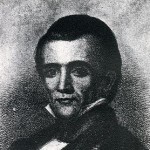 Every surname has an origin. That is because surnames were not always used. In the very earliest of times, people were known by their given name and the place they were from…meaning that I would have been Caryn of Superior. I’m not sure when the changes took place, but it often started by giving the people who lived in a town the town name as their last name, so since my husband’s family came from a town called Schulenberg, Germany, their last name became Schulenberg, and so it has continued to this day.
Every surname has an origin. That is because surnames were not always used. In the very earliest of times, people were known by their given name and the place they were from…meaning that I would have been Caryn of Superior. I’m not sure when the changes took place, but it often started by giving the people who lived in a town the town name as their last name, so since my husband’s family came from a town called Schulenberg, Germany, their last name became Schulenberg, and so it has continued to this day.
The Knox family name, however, has changed extensively over the years. The name is Gaelic, and it means a little hill. Figuratively is could also mean a stout man. The name was originally spelled Cnoc, and has since taken on many spellings, such as, Knox, Nox, Nock, Nocks, Nockes, Knock, Knocks, Knockes, Noke, Nokes, Noake, Noakes, and possibly more. What that says to me is that we may be related to many more people than we know, and how will we ever find out…seriously, how? This kind of a thing is truly a genealogical nightmare. Then, to complicate matters further, these people move from one country to another, and sometimes the records are not well kept, or worse yet, the names are changed to make them fit the country they are now living in.
The forebear of the Knox family was said to be Adamus, of Saxon origin, who received the barony of Cnoc or Knox in Renfrewshire as part of a dowry. The first recorded spelling of the name was that of John de Cnoc, his son, in 1260 in the charter lists for Renfrewshire. Over the centuries the family has included royalty, 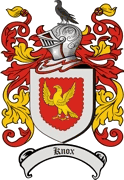 presidents, and others from aristocracy. Some of those notables are names I recognized before I was even a part of the family, such as James K Polk, who was our 11th President. I still have to wonder how many others out there who might have been notable and related to us.
presidents, and others from aristocracy. Some of those notables are names I recognized before I was even a part of the family, such as James K Polk, who was our 11th President. I still have to wonder how many others out there who might have been notable and related to us.
Since I have been more and more interested in Heraldry, I also checked into the heraldry of the Cnoc name. The oldest known coat of arms is in colors of gold and red. The gold signified generosity. The red signified warrior, martyr, and military strength. The helmet signifies wise defense. The dove signifies love and peace. In Ireland, the Dove was regarded as the bird of God. The shield Bordure – represents honor. It is a beautiful coat of arms, and is an item of proud heritage belonging to the Knox or Cnoc family. Nevertheless, while there is much known information, there is still much that is unknown, and that makes it a genealogical nightmare.
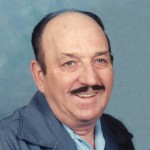
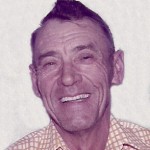 All dads are special in their own ways, whether they are dad to boys, girls, or a mix of both, once they become dads they truly become a totally different person. A man who has never been a dad, can love children or not, but when the children are his own, they are just different…special, and well…perfect. Their own children are always amazing, and its simply because their are their own. It doesn’t really matter if they wanted boys or girls, or some of each, because when that little one arrives, their Daddy’s Heart kicks into high gear and they find themselves thinking that there never was a greater kid than the one they were given. And each new child is viewed the same.
All dads are special in their own ways, whether they are dad to boys, girls, or a mix of both, once they become dads they truly become a totally different person. A man who has never been a dad, can love children or not, but when the children are his own, they are just different…special, and well…perfect. Their own children are always amazing, and its simply because their are their own. It doesn’t really matter if they wanted boys or girls, or some of each, because when that little one arrives, their Daddy’s Heart kicks into high gear and they find themselves thinking that there never was a greater kid than the one they were given. And each new child is viewed the same.
I’ve seen the Daddy’s Heart in so many people, beginning with my own dad, Allen Spencer, then with my  husband, Bob and his dad, Walt Schulenberg. Whatever their kids needed was priority. I don’t mean to say that we were all spoiled rotten, because we had rules and discipline, but when it came to making our lives wonderful, they were right there, making sure that we were so very blessed. It was not about lots of things, but rather the love they showed to us every day. Whenever things were wrong in our lives, there were our dads, with a hug and the words, “It will be alright.” And, of course, they were right. Everything was always alright, because our dads made sure of it, or maybe it was just their wisdom, in that they knew that the tragedies we faced today were most often not as bad as we thought they were, and tomorrow was another day…that would usually be much better, because things usually look very different the next day.
husband, Bob and his dad, Walt Schulenberg. Whatever their kids needed was priority. I don’t mean to say that we were all spoiled rotten, because we had rules and discipline, but when it came to making our lives wonderful, they were right there, making sure that we were so very blessed. It was not about lots of things, but rather the love they showed to us every day. Whenever things were wrong in our lives, there were our dads, with a hug and the words, “It will be alright.” And, of course, they were right. Everything was always alright, because our dads made sure of it, or maybe it was just their wisdom, in that they knew that the tragedies we faced today were most often not as bad as we thought they were, and tomorrow was another day…that would usually be much better, because things usually look very different the next day.
Then, I watched my sons-in-law, Kevin Petersen and Travis Royce step into that role with their children, I could see that another generation of children in my family were in the very best of hands. Their dads, just like my dad, my father-in-law, and my husband before them had the Daddy’s Heart. They would do their very best to 
 teach the kids the right way to go, and to fix the boo boos of life as they came along. Kevin and Travis are dads, and like all good dads, their kids are their top priority. And since their kids are pretty much grown now, I know that they will someday be the grandpas of their family. It is a place of honor and wisdom, and a place of being a little bit different kind of dad than they were before, but still a great blessing nevertheless. Happy Father’s Day to the dads in my life, and all dads everywhere. And a special Happy Father’s Day to my dad and my father-in-law in Heaven. We love and miss you very much, every day.
teach the kids the right way to go, and to fix the boo boos of life as they came along. Kevin and Travis are dads, and like all good dads, their kids are their top priority. And since their kids are pretty much grown now, I know that they will someday be the grandpas of their family. It is a place of honor and wisdom, and a place of being a little bit different kind of dad than they were before, but still a great blessing nevertheless. Happy Father’s Day to the dads in my life, and all dads everywhere. And a special Happy Father’s Day to my dad and my father-in-law in Heaven. We love and miss you very much, every day.
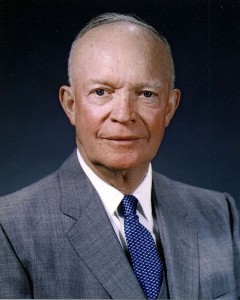 Not all of us can say that we knew a US President, before or during their presidency, but my uncle, Jim Wolfe could say that. Uncle Jim was in the army during World War II, and was on his way to England on a ship. Being the kind of guy who liked to see how things worked, Uncle Jim was laying on the back end of the ship watching the propeller go in and out of the water. Ike came up behind him and asked him if he was sick. Uncle Jim said, “No, I was just watching the prop.” Ike said, “Lord, man I would be so sick it would kill me and I’m on ships all the time.” He told Uncle Jim to come with him and they were going to go to Officers Mess and have coffee. Dad said “I can’t go there I will get in trouble.” Ike informed Uncle Jim that as long as he was with him, they wouldn’t say anything to him.
Not all of us can say that we knew a US President, before or during their presidency, but my uncle, Jim Wolfe could say that. Uncle Jim was in the army during World War II, and was on his way to England on a ship. Being the kind of guy who liked to see how things worked, Uncle Jim was laying on the back end of the ship watching the propeller go in and out of the water. Ike came up behind him and asked him if he was sick. Uncle Jim said, “No, I was just watching the prop.” Ike said, “Lord, man I would be so sick it would kill me and I’m on ships all the time.” He told Uncle Jim to come with him and they were going to go to Officers Mess and have coffee. Dad said “I can’t go there I will get in trouble.” Ike informed Uncle Jim that as long as he was with him, they wouldn’t say anything to him.
In the Officers Mess, Uncle Jim and Ike talked for a long time and then went their separate ways on the ship. When they got to England, Uncle Jim saw him a few times and then on D-Day, they found themselves on the same ship again. When they disembarked, they were under heavy fire, and my cousin Shirley Cameron tells me that Ike got a hold of her dad, my Uncle Jim and asked him how his shooting was. Uncle Jim said that it was good. Ike said, “See that guy in that tree way up there.” Uncle Jim said that he did, and Ike asked if he could hit him. Uncle Jim shot, hit, and killed the man. Ike said for Uncle Jim to stay with him. They were together for quite a while before they got separated. At that point, Uncle Jim was sent to another area.
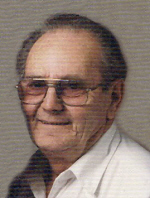
Uncle Jim ended up opening up some of the concentration camps. That was probably the worst part of his service. He said the men were like the walking dead. They were sick, weak, and skinny. All they could do was grab hold of him and thank him over and over for getting them out of that horrible place. Shirley tells me that he saw little wooden sheds that had bodies stacked from bottom to top, There were also pits that had bodies stacked in them ready for the heavy equipment to push the dirt over the top. She told me that experience gave him nightmares for years. He used to have pictures of all of that and the people that they helped out of the camps, but unfortunately they were lost in the fire that destroyed his home a number of years ago. After his time there, Uncle Jim was sent to France to help with the Liberation there. I’m sure he came home with many stories of the war, but as far as I know, that was the last time he ever saw the man who would later become our 34th US President, Dwight D Eisenhower…aka Ike.
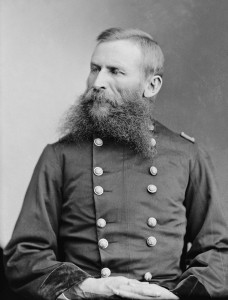 The states we now know as Montana and Wyoming, were originally supposed to belong to the Indians…a fact that many people don’t realize. Unfortunately, the White Man only stuck to a plan as long as the plan worked for the White Man. When gold was found in the Black Hills, there was no holding the White Man back. The plan was to try to buy the land from the Indians, but when that was not well received, they gave them an ultimatum…report to the reservations…or else. It was a matter of sell to us or we will take it…sound familar? The Indians simply did not take to the White Man’s plan very well. War broke out pretty quickly, and it was different than other wars, because the Indians did not play be the White Man’s rules of engagement. It was a very different type of war, and to win, the White Man would have to learn how to fight in a very different way. And it was a way they were not very good at.
The states we now know as Montana and Wyoming, were originally supposed to belong to the Indians…a fact that many people don’t realize. Unfortunately, the White Man only stuck to a plan as long as the plan worked for the White Man. When gold was found in the Black Hills, there was no holding the White Man back. The plan was to try to buy the land from the Indians, but when that was not well received, they gave them an ultimatum…report to the reservations…or else. It was a matter of sell to us or we will take it…sound familar? The Indians simply did not take to the White Man’s plan very well. War broke out pretty quickly, and it was different than other wars, because the Indians did not play be the White Man’s rules of engagement. It was a very different type of war, and to win, the White Man would have to learn how to fight in a very different way. And it was a way they were not very good at.
Most people remember the Battle of the Little Big Horn, in that so many men rode to their deaths. While Custer was in a place he shouldn’t have been, and a battle in which he was outnumbered, it is my opinion that he took a bad situation and did the best he could do with it. He went into battle knowing he would not survive it, and in that way it was brave. Even if the battle was not going to be won, it was brave. Still, that battle was not the only battle that showed bravery against daunting odds.
Just eight days earlier, Sioux and Cheyenne Indians won a major victory over General Crook’s forces at the Battle of the Rosebud. General Cook was in command of one of three columns of soldiers who were converging on the Big Horn Country of southern Montana that June. Sitting Bull, Crazy Horse, and several other chiefs had 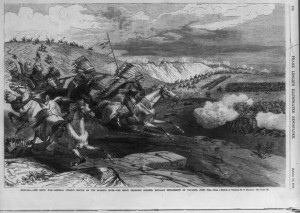 joined forces in the area. They were there in defiance on the US demands that the Indians confine themselves to the reservations. The army saw this protest as an opportunity to launch a massive three-proged attack, fully expecting to win a decisive vistory over the Indians.
joined forces in the area. They were there in defiance on the US demands that the Indians confine themselves to the reservations. The army saw this protest as an opportunity to launch a massive three-proged attack, fully expecting to win a decisive vistory over the Indians.
Crook and his men marched north from Fort Fetterman in Wyoming Terretory, intending to join the two others, the columns of General Gibbon and General Terry. General Terry’s force included the soon to be famous 7th Cavalry under the command of General George Custer. Given the distances between the troops and the lack of reliable communication, it was difficult to coordinate the three armys. Their plan was to converge on the valley of the Big Horn River and stage their assault. The biggest problem was that they had only a vague idea of how many men their enemy included, and they were way off.
Upon their arrival in the area, Crook’s scouts told him that there were signs of a major Sioux force in the area. Crook was convinced that the Sioux would run rather than fight, and he thought they were encamped near the Rosebud Creek. He wanted to attack before they had time to run. Unfortunately for him, they did not have the intel to know that they were severely outnumbered, not did he know that Crazy Horse was a brilliant war chief. The scouts tried to warn General Crook that Crazy Horse would never allow him to attack a stationary village, and he soon learned that they were right.
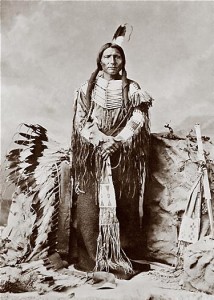 At around 8:00am on this day, June 17, 1876, Crook halted his force of 1,300 men in the bowl of a small valley along the Rosebud Creek to allow the rest of his men to catch up. The men unsaddled their horses, and within minutes a mass of Sioux Indians converged on them. They were hit by a force of 1,500 Sioux Indians and unbeknownst to Crook, Crazy Horse had an additional 2,500 warriors in reserve. Crazy Horse’s 4,000 warriors outnumbered Crook’s divided and unprepared army three to one. Had it not been for the wisdom and courage of Crook’s Indian allies, the battle would have ended just like the Battle of the Little Big Horn. There were numerous brave acts on both sides, including a Cheyenne girl who rescued her brother after his horse had been shot out from under him. In the end, 28 men were killed and 56 were seriously wounded. Crook withdrew his men. The warriors were emboldened and eight days later they joined up with their tribesmen in the Battle of the Little Big Horn, which of course, wiped out General George Custer and the 7th Cavalry.
At around 8:00am on this day, June 17, 1876, Crook halted his force of 1,300 men in the bowl of a small valley along the Rosebud Creek to allow the rest of his men to catch up. The men unsaddled their horses, and within minutes a mass of Sioux Indians converged on them. They were hit by a force of 1,500 Sioux Indians and unbeknownst to Crook, Crazy Horse had an additional 2,500 warriors in reserve. Crazy Horse’s 4,000 warriors outnumbered Crook’s divided and unprepared army three to one. Had it not been for the wisdom and courage of Crook’s Indian allies, the battle would have ended just like the Battle of the Little Big Horn. There were numerous brave acts on both sides, including a Cheyenne girl who rescued her brother after his horse had been shot out from under him. In the end, 28 men were killed and 56 were seriously wounded. Crook withdrew his men. The warriors were emboldened and eight days later they joined up with their tribesmen in the Battle of the Little Big Horn, which of course, wiped out General George Custer and the 7th Cavalry.
 On this day, June 16, 1961, the star of the Soviet Union’s Kirov Opera Ballet Company, Rudolf Nureyev defected while on a tour with the ballet company in France. He was 23 years old. It was a huge blow to the Soviet Union, both in the loss of Kirov Opera Ballet Company’s star, and that it severely damaged Soviet propaganda that touted the political and artistic freedom in Russia. But, Nureyev was not the first to defect, nor would he be the last. Communism had taken over Russia after the Russian Civil War, in which the Red Army successfully defended the Bolshevik government against various Russian and anti-Bolshevik armies. The Bolsheviks were Communist, and Russia would never be the same after their takeover.
On this day, June 16, 1961, the star of the Soviet Union’s Kirov Opera Ballet Company, Rudolf Nureyev defected while on a tour with the ballet company in France. He was 23 years old. It was a huge blow to the Soviet Union, both in the loss of Kirov Opera Ballet Company’s star, and that it severely damaged Soviet propaganda that touted the political and artistic freedom in Russia. But, Nureyev was not the first to defect, nor would he be the last. Communism had taken over Russia after the Russian Civil War, in which the Red Army successfully defended the Bolshevik government against various Russian and anti-Bolshevik armies. The Bolsheviks were Communist, and Russia would never be the same after their takeover.
My 4th great grandfather, Johann Georg Beyer was born in Germany in 1752, but the family immigrated to Russia in the mid 1700s, probably due to a poor economy in Gemany at the time. Later, when things heated up in Russia, the family decided to make the move to America. They worried about the impact Communism would have on their family, not to mention the fact that people were being pressed into service…even as young children. I believe that they got out pretty much in the nick of time to keep their family from being torn apart, however, one son was taken and to my knowledge, never heard from again.
There are many reasons why people would do everything they can to escape a Communist regime, and I’m sure that is also why Nureyev defected. I suppose that his life was different, since he had a talent that Russia wanted more than putting him in the army, but what if he could no longer dance? And what of his family should he have one? They might not be able to dance, and so might be forced to go into the army. And Russia has been saying that they had political and artistic freedom, but as we all know, that wasn’t true in reality. After defecting, Nureyev continued his career as a dancer. Over the next 30 years he danced with England’s Royal Ballet and the American Ballet Theatre. He was in great demand as both a dancer and choreographer, and even 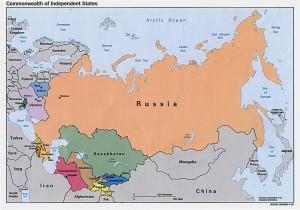 made a few films, including an unsuccessful stint as the silent film star Rudolf Valentino. In 1983, he took over as ballet director of the Paris Opera. In 1989, he briefly returned to the Soviet Union to perform. He died in Paris in 1993.
made a few films, including an unsuccessful stint as the silent film star Rudolf Valentino. In 1983, he took over as ballet director of the Paris Opera. In 1989, he briefly returned to the Soviet Union to perform. He died in Paris in 1993.
While, Nureyev chose to return to Russia for a performance, possibly to show them that he was a free man, my grandfather’s family chose never to return to Russia, or to German as far as I know. It could have been that they distrusted the ability to get back out, but I think they just longed for a peaceful life, in a free nation, free from the tyranny of a corrupt government. That makes me wonder what they would think of things here in America now.
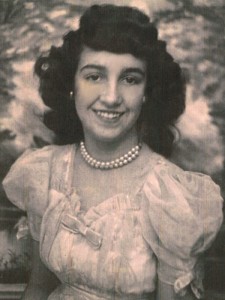 My Aunt Virginia Beadle is a soft spoken, teeny little woman, who is beautiful, inside and out. Beauty is a trait the Byer family kids all had in common, although I’m sure the two boys preferred handsome. Nevertheless, my grandparents did give birth to nine very beautiful people. Aunt Virginia was the second of my grandparents’ children, following my Aunt Evelyn, who was about two years older than Aunt Virginia. Like her older sister, Aunt Virginia was a friendly person who was liked by everyone she met. Since the Byer family has lived in this area for many, many years, that could be a very long list of people too. In fact, I am often amazed at the people I run into who know or knew my Aunt Virginia and her siblings.
My Aunt Virginia Beadle is a soft spoken, teeny little woman, who is beautiful, inside and out. Beauty is a trait the Byer family kids all had in common, although I’m sure the two boys preferred handsome. Nevertheless, my grandparents did give birth to nine very beautiful people. Aunt Virginia was the second of my grandparents’ children, following my Aunt Evelyn, who was about two years older than Aunt Virginia. Like her older sister, Aunt Virginia was a friendly person who was liked by everyone she met. Since the Byer family has lived in this area for many, many years, that could be a very long list of people too. In fact, I am often amazed at the people I run into who know or knew my Aunt Virginia and her siblings.
Being the second oldest brought with it a certain degree of responsibility as the younger siblings came along. While grandma didn’t work outside the home, big families require the cooperation of all its members, and the older ones are first in line to help out. I suppose it was with the older children that the singing while you work tradition came about in my grandparents’ family. They would sing while they did the dishes or cleaned the house. It made for a happy home, and it was with the help of the older siblings, like Aunt Virginia that the younger siblings learned the  songs and tradition. It was a tradition that was a tribute to my grandmother, Hattie Byer. She instilled in her children a love of song, happiness, and hard work.
songs and tradition. It was a tradition that was a tribute to my grandmother, Hattie Byer. She instilled in her children a love of song, happiness, and hard work.
As a child, I remember Aunt Virginia’s soft laugh and her sweet smile. She was always so much fun to be around. Her gentle spirit always made me feel loved. What more could a little kid ask from their aunt. I have always felt very blessed to know my Aunt Virginia. With Aunt Evelyn’s passing in May, Aunt Virginia became the oldest sibling left in the family. In many ways, that is kind of a wake up call for all of us…take the time to touch base with her whenever you can. Today is Aunt Virginia’s birthday. Happy birthday Aunt Virginia!! Have a wonderful day!! We love you!!
 After a month and a half of having my daughter, Amy Royce, her husband, Travis, and their son, Caalab living in the Seattle, Washington area, I find myself feeling a little bit better…in some ways. I find myself spending time on Google Earth looking over the area they live in, and hoping to find some cool thing for them to see, that they might not have realized was even there. Although, they really don’t need my help to find the sights. They have been exploring for weeks now. I know they love their new home, but I would love to turn back the hands of time, to a time when they were still here…if I could.
After a month and a half of having my daughter, Amy Royce, her husband, Travis, and their son, Caalab living in the Seattle, Washington area, I find myself feeling a little bit better…in some ways. I find myself spending time on Google Earth looking over the area they live in, and hoping to find some cool thing for them to see, that they might not have realized was even there. Although, they really don’t need my help to find the sights. They have been exploring for weeks now. I know they love their new home, but I would love to turn back the hands of time, to a time when they were still here…if I could.
Recent years have take several people out of my life…some I will see on this Earth again, and some I will only see in Heaven. In most ways, I would not ever choose to turn back the hands of 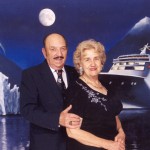 time, because I keep thinking of all the people who wouldn’t be in my life if I was a little girl, a teenager, or even a young mother. Not having my husband, children, or grandchildren would never be my choice, simply for the opportunity to be younger, but would that I could turn back time…maybe just fifteen years to a time when both my parents were healthy, as was my father-in-law, and my kids still lived here…I might consider it…if it were possible. Unfortunately, it isn’t possible, so I must live in the time that I am in, and with the circumstances as they exist now. That is the way life is.
time, because I keep thinking of all the people who wouldn’t be in my life if I was a little girl, a teenager, or even a young mother. Not having my husband, children, or grandchildren would never be my choice, simply for the opportunity to be younger, but would that I could turn back time…maybe just fifteen years to a time when both my parents were healthy, as was my father-in-law, and my kids still lived here…I might consider it…if it were possible. Unfortunately, it isn’t possible, so I must live in the time that I am in, and with the circumstances as they exist now. That is the way life is.
As for Amy and her family, I am thankful that we will travel to see them and they will travel to see us. I am thankful for free long distance, texting, Facetime, Skype, and Facebook, because they make it so much easier to keep in touch. I see how happy they are, and it is hard to wish things were different for them. I have never met anyone who loves the rain more than Amy, so the Seattle area is really perfect for Amy. Having them  there is just not perfect for me. I guess it would not matter if we were able to zip across the nation as quickly as they could on Star Trek, but we can’t, so I am left feeling lonely and thinking that it would be nice to turn back the hands of time for a little while anyway.
there is just not perfect for me. I guess it would not matter if we were able to zip across the nation as quickly as they could on Star Trek, but we can’t, so I am left feeling lonely and thinking that it would be nice to turn back the hands of time for a little while anyway.
Our lives, nevertheless, are a series of events that once they are played out, there is very little option to go back and change them. We must live them out, following the twists and turns that our journey’s road takes us on, and just doing the best we can to live each moment to the fullest, because even if we would turn back time, we can’t turn back time. Each day once spent is over and can never be spent a second time.
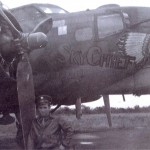 Many times I have written about my Dad’s time in the war, and what he went through, but I’m not sure I truly understood what he went through. Dad never talked about the war much, and maybe that led us to believe that what he went through wasn’t so bad for him. In reality, I don’t think I knew much about Dad’s service time at all. My nephew loaned me a movie called Fortress, and I was very interested in watching it. I don’t know what I expected it to be, but it was not. Everything on the B-17 happened so very fast.
Many times I have written about my Dad’s time in the war, and what he went through, but I’m not sure I truly understood what he went through. Dad never talked about the war much, and maybe that led us to believe that what he went through wasn’t so bad for him. In reality, I don’t think I knew much about Dad’s service time at all. My nephew loaned me a movie called Fortress, and I was very interested in watching it. I don’t know what I expected it to be, but it was not. Everything on the B-17 happened so very fast.
While the movie was quite graphic, and not one that some people would like to watch, it was based on a true story and it gave me a very different perspective about what it was like to fly in a B-17 Bomber. I knew that the life of a ball turret gunner in combat was a mere twenty minutes, and I knew that during the time Dad was on the B-17, there was at least one ball turret gunner who was killed. They tried to save him, but it was not to be. In an instant it was over.

The Flying Fortress, as the B-17 Bomber was called, was one of the safer parts of the war, but that meant nothing when you are flying to a bomb drop and the enemy doesn’t want you to make it. The movie brought home just how hard it was to really spot the enemy planes. They would say that the enemy was right there, and I found myself thinking, “Where?” Then suddenly there they were, and the men on the plane had been firing for several seconds already. It felt like trying to explain how to spot the enemy, and by the time you get the word “well” out, you have already been hit.
While any gunner position was dangerous, I was struck by how exposed the waist gunners were. In case you don’t know, the waist gunners are the guys that shoot out the side doors of the plane. The doors are open, leaving them with very little protection. They had to be on their toes, because the enemy was shooting for their gun, and if they weren’t paying attention, they were shot before they got a second chance to pay attention. That made things really hard, because they also felt a close commraderie with their partner, the other waist 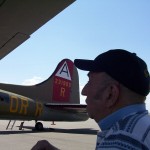 gunner, and if their partner got shot, it was hard to stay on task…but that was hard for any one of the men on the plane.
gunner, and if their partner got shot, it was hard to stay on task…but that was hard for any one of the men on the plane.
Watching the men they worked with every day, get shot and killed became a normal thing. Being normal and being able to cope, are two very different things. These men had to hold it together, while quietly falling apart inside. They knew their friend was dead, and yet they had to do their job. They couldn’t grieve. They couldn’t stop. They had to push that picture of their dead friend way back inside themselves, and do their job. Lives depended on it…including their own. I knew that my dad was on a B-17, but until I watched that movie, I really didn’t understand all of what that meant.
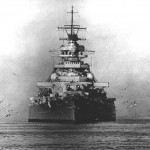 After I wrote the story about the sinking of the Bismarck, my nephew, Steve Spethman told me about a documentary he had about the man who located the Bismarck, and the search for it. Of course, I jumped at the chance to watch it, but when I was done watching it, I felt…different. It’s easy to be excited about a victory in a battle in wartime, or in a war that your dad fought in. It’s easy to set aside the thoughts of lives lost in historic battles, when you know that the battle had to be fought, and the victory would determine the course of the world stage. The problem with that thinking though, is that all too often…especially in countries governed by an evil dictator, such as Adolf Hitler, the people involved in the war, have no choice as to whether or not to fight. I know that a draft is sometimes necessary, but I would much rather have a military machine composed of volunteers than one from a draft. I think volunteers know what they are walking into. It is a cause they agree with, not one they were forced to accept.
After I wrote the story about the sinking of the Bismarck, my nephew, Steve Spethman told me about a documentary he had about the man who located the Bismarck, and the search for it. Of course, I jumped at the chance to watch it, but when I was done watching it, I felt…different. It’s easy to be excited about a victory in a battle in wartime, or in a war that your dad fought in. It’s easy to set aside the thoughts of lives lost in historic battles, when you know that the battle had to be fought, and the victory would determine the course of the world stage. The problem with that thinking though, is that all too often…especially in countries governed by an evil dictator, such as Adolf Hitler, the people involved in the war, have no choice as to whether or not to fight. I know that a draft is sometimes necessary, but I would much rather have a military machine composed of volunteers than one from a draft. I think volunteers know what they are walking into. It is a cause they agree with, not one they were forced to accept.
The movie about the Bismarck’s location, while mostly about the location of a sunken ship, was very different  from the documentaries I had seen about other ships, like the Titanic. While both ships were located by the same man, Robert Ballard, the feelings taken away from the Bismarck, both for Ballard and for the audience were quite different. The addition of commentary from some of the actual survivors of the Bismarck, as well as men on the ships who went in for the final sinking and the rescue of survivors, was very sobering. I was very moved by the German men who remembered the name of the man, Joe Brooks, who risked his own life to try to pull them from the water. They said, in fact, that his name was revered among German soldiers everywhere. This was a man who, in a war situation, chose to do good to his enemies…an almost unheard of act in wartime, but that act from the middle of a war, is still remembered 74 years later.
from the documentaries I had seen about other ships, like the Titanic. While both ships were located by the same man, Robert Ballard, the feelings taken away from the Bismarck, both for Ballard and for the audience were quite different. The addition of commentary from some of the actual survivors of the Bismarck, as well as men on the ships who went in for the final sinking and the rescue of survivors, was very sobering. I was very moved by the German men who remembered the name of the man, Joe Brooks, who risked his own life to try to pull them from the water. They said, in fact, that his name was revered among German soldiers everywhere. This was a man who, in a war situation, chose to do good to his enemies…an almost unheard of act in wartime, but that act from the middle of a war, is still remembered 74 years later.
So seldom, when talking about a war, do you hear about both sides of the war. While you may hear about 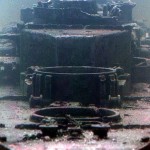 their goals and reasons for going to war, you don’t hear about the human factor of each side. I think that was the thing that made me feel so different…almost somber after the movie. One man said that in a sea battle, you usually never see the enemy. He saw men…just briefly as they were running across the deck of the Bismarck. That was it…until they were in the water beside his ship. Then they weren’t soldiers, but real people in dire straits, who were about to lose their lives. In the end, Robert Ballard stood alone at the back of the ship he was on when he found the Bismarck, and I could tell that he felt the same way as I did. The war and the battle had both been a necessary action on the part of the allies, because evil cannot be allowed to prevail, but that simply does not change the fact that these were real lives and real tragic situations.
their goals and reasons for going to war, you don’t hear about the human factor of each side. I think that was the thing that made me feel so different…almost somber after the movie. One man said that in a sea battle, you usually never see the enemy. He saw men…just briefly as they were running across the deck of the Bismarck. That was it…until they were in the water beside his ship. Then they weren’t soldiers, but real people in dire straits, who were about to lose their lives. In the end, Robert Ballard stood alone at the back of the ship he was on when he found the Bismarck, and I could tell that he felt the same way as I did. The war and the battle had both been a necessary action on the part of the allies, because evil cannot be allowed to prevail, but that simply does not change the fact that these were real lives and real tragic situations.
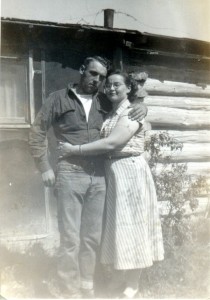 Sixty six years ago, when the bitterly cold winter of 1949 was finally over and spring had finally arrived, my mother-in-law, Joann Knox was a young girl of eighteen, and she was in love. She had known her future husband and the love of her life, Walter Schulenberg, all her life. Still, knowing him didn’t mean they were always in love, or even that they liked each other. Little kids can be friends with someone, and then when they get older, things change. Then, as was the case with my in-laws, things can change again. That annoying teenaged boy or girl suddenly takes on a new look to you. Suddenly, the time is right, and they both wonder why they didn’t see this person this way before. That’s how it was for my in-laws. Grandma Knox, Joann’s mom told me once that after they got older, Mom didn’t like Dad one bit. I would guess that was probably in his bratty adolescent years, when most boys are awkward around girls…especially if they like them at all.
Sixty six years ago, when the bitterly cold winter of 1949 was finally over and spring had finally arrived, my mother-in-law, Joann Knox was a young girl of eighteen, and she was in love. She had known her future husband and the love of her life, Walter Schulenberg, all her life. Still, knowing him didn’t mean they were always in love, or even that they liked each other. Little kids can be friends with someone, and then when they get older, things change. Then, as was the case with my in-laws, things can change again. That annoying teenaged boy or girl suddenly takes on a new look to you. Suddenly, the time is right, and they both wonder why they didn’t see this person this way before. That’s how it was for my in-laws. Grandma Knox, Joann’s mom told me once that after they got older, Mom didn’t like Dad one bit. I would guess that was probably in his bratty adolescent years, when most boys are awkward around girls…especially if they like them at all.
As the years went by, Walt and Joann moved in different circles, and didn’t really see each other very much, but then one day, he noticed her again. My mother-in-law wasn’t too sure how she felt about his new found interest in her, as she still thought of him as a bit of an annoying boy, but if you knew my father-in-law at all, you would know that he had a winning personality, and it was really hard not to like him. That is what my mother-in-law found too. Before long, they were an item. First meeting them after many years of marriage, and meeting them is a more reserved situation…for my mother-in-law at least, I never saw the love struck side of their early relationship. I don’t think their kids really did either. Their love letters, written during the times he was working one place and she another, were tender and sweet. It was such a surprise to see those letters, because they just never seemed to me to be the googly eyed kind of couple, and yet, here in their letters, they were.
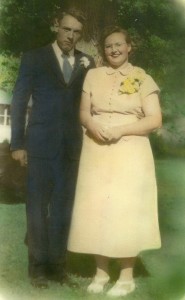
As time passed, their future plans began to grow, and when Joann graduated, they decided to be married. Like their granddaughter, Corrie Petersen, my daughter, they didn’t wait very long after graduation. The wedding took place on the 5th anniversary of D-Day, a fact that I seriously doubt that either of them gave a single thought to…at least not that year. Like many marriages of that time, it was a simple wedding…much like my own parents’ wedding just a few years later. My mother-in-law wore a simple peach colored dress and my father-in-law a suit. Nevertheless, it was for them the perfect day…the culmination of the many years of an on again, off again friendship, now turned to a forever kind of love. Today marks the 66th anniversary of that wedding day, and while my father-in-law has been gone now for two years, my mother-in-law is still alive, and since she does not realize that he is gone, we will still tell her happy anniversary…at the same time that we tell her that Dad is out in the garage working on a car, or at Walmart, or visiting the neighbors, because to tell her he is gone would be just too mean. Happy anniversary to my in-laws, Walt…in Heaven, and Joann, here on Earth. Have a wonderful day. We love you both very much.

